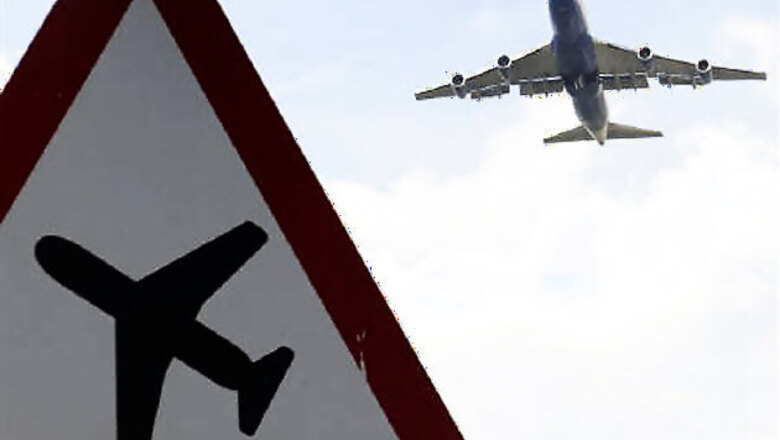
views
New Delhi: With bird strikes costing the aviation industry millions of dollars, plane manufacturers are now working on a system that will be installed in the aircraft to scare off the avians.
Aircraft manufacturer Airbus is developing a system under its Bird Impact Repellent and Deterrent sYstem (BIRDY) programme that will scare away almost every species of birds.
"Challenge is to develop a system that is effective for large number of species of birds found across the globe," Nathalie Papin, an expert with Airbus Industrie, said in New Delhi.
According to estimates, airlines in the US suffer loss of USD 68.3 million per year while worldwide the carriers have lost USD 1.3 billion in direct damage and associated costs in terms of aircraft down-time.
In India, airlines have lost about Rs 18 crore in 2011 due to bird-hits and incidents of runway incursions by stray animals.
According to an Airbus study, in the incident of a bird- hit, 41 per cent chances are that an aircraft's engine or its nose, radome and windshield is damaged. While chances of fuselage or wings being damaged is just seven per cent, the same stands at three per cent for landing gears and one per cent for tail.
Under the BIRDY programme, an acoustic and visual system is being developed that would scare the birds when they come near an aircraft, Papin, who was here for a seminar organised by Aeronautical Society of India, said.
Currently, airports are using a system that emits electronic sounds, distress and alarm calls and predator attack cries to keep birds away from their vicinity, but it proves ineffective when aircraft gains height and moves away from airport.
Most of the bird-hits occur when the aircraft is either gaining altitude or descending for landing. According to a study, the majority of bird-strikes occur below 500 ft from the ground level.
Addressing the seminar, Airports Authority of India Chairman VP Agarwal said that "birds are now not afraid of aircraft".
"Earlier, aircraft used to be noisier. They used to scare away the birds but now with use of less noisy jet planes they are less fearful," he said, adding that there is a need for new technologies that are cost effective in containing the bird-hit menace.




















Comments
0 comment